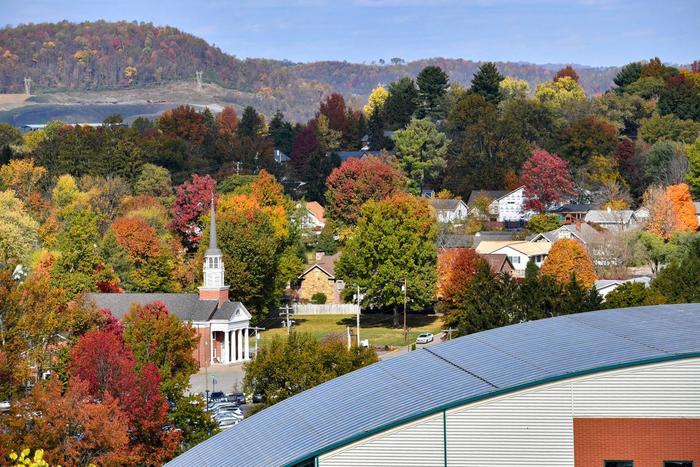Faith community nurses and other leaders play integral roles in the holistic health of rural residents, yet they are not immune to stress and burnout, according to a West Virginia University study.

Credit: WVU Photo/Jennifer Shephard
Faith community nurses and other leaders play integral roles in the holistic health of rural residents, yet they are not immune to stress and burnout, according to a West Virginia University study.
Angel Smothers, associate dean for community engagement and clinical associate professor in the School of Nursing, and her team surveyed 49 faith community nurses and leaders — pastors and priests — from 10 West Virginia counties to determine their quality of life and perceived stress.
While most study participants expressed a moderate sense of compassion satisfaction — the satisfaction derived from being able to do a job well — more than half reported moderately high perceived stress. Nearly half said they experienced moderate burnout and 38% reported moderate-to-high compassion fatigue.
Consistent with other research, the findings show participants who perceived low stress were likely to have better compassion satisfaction in their jobs. However, when perceived stress was high, they were more likely to have compassion fatigue and burnout.
“Compassion fatigue happens when someone, a nurse or pastor, spends a large amount of time and energy each day supporting and caring for others,” Smothers said. “We also call it ‘burnout.’”
According to the American Nurses Association, compassion fatigue can bring about feelings of perceived failure, helplessness and anxiety, culminating in depersonalization and desensitization to patients.
The study, published in the Journal of Christian Nursing, points out the importance of recognizing compassion fatigue within those serving the faith community so that those individuals can initiate self-care strategies. Recommendations include using a team-based approach so no individual faith leader or faith community nurse is carrying a heavier load. Teamwork will also avoid duplication of support services, especially during times of higher workload and stress.
“Ongoing collaboration between and among different faith traditions and faith leaders is an important next step in building access to care points within faith community settings,” Smothers said.
Faith community nurses hold registered nurse licenses and are trained with specialization in providing nurse-led care grounded in spiritual principles. They provide health education and maintenance, counseling and advocacy, among other services.
“West Virginia leads the nation in many poor health-related outcomes,” Smothers said. “It is the third most rural state in the nation and the only state that is totally in the Appalachian region. Faith community leaders, including faith community nurses, often serve as access to care and support sites within rural settings.”
Although the study was based on practices and perceptions associated with the COVID-19 pandemic when caregivers provided support solely through distance technology, the information gathered can provide building blocks for faith community nurses and faith leaders as their roles expand with more common use of telehealth.
“The use of telehealth technology during COVID helped us to see a way forward in using these technologies in ways that before COVID we could not anticipate,” Smothers said.
The School of Nursing’s Faith Community Nursing initiative celebrated its first telehealth visit recently in McDowell County, providing mental health services to a rural resident who may have otherwise been unable to access the specialty care.
Smothers was joined in the study by the School of Nursing’s Elizabeth Morrissey, graduate assistant; Helen Melnick, student research assistant; Molly Beaver, student research assistant; Kesheng Wang, associate professor; and Ubolrat Piamjariyakul, associate dean for nursing research.
Journal
Journal of Christian Nursing
DOI
10.1097/CNJ.0000000000001017
Article Title
COVID-19 Caregiving Strategies, Quality of Life, and Stress Among Faith Community Nurses and Faith Leaders in Appalachia




